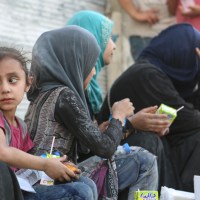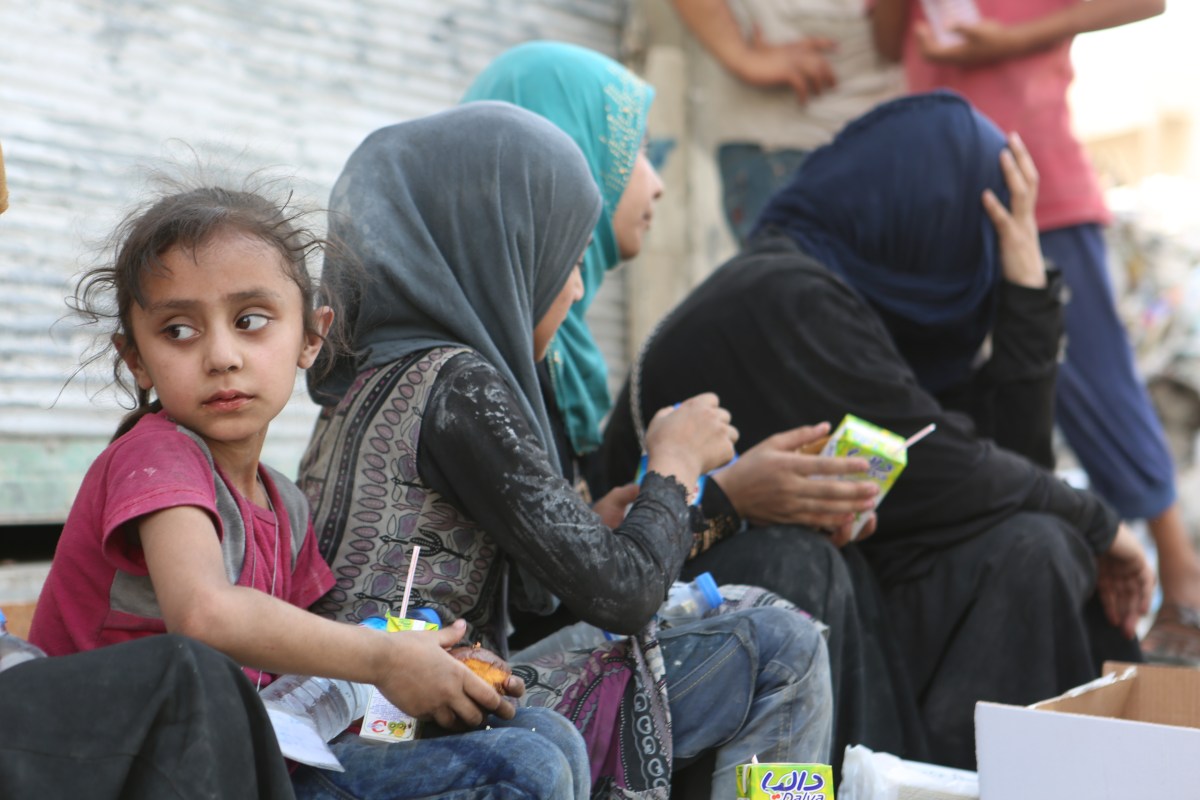A UN-approved humanitarian corridor opened briefly in a besieged part of Syria today, to give bombarded civilians a chance to escape. But as the 5-hour window, unilaterally set by Russian officials, came and went, the corridor remained empty. No aid got into besieged communities—and reportedly, no civilians got out.
Both sides accuse the other of targeting the humanitarian corridor to discourage civilians from fleeing.
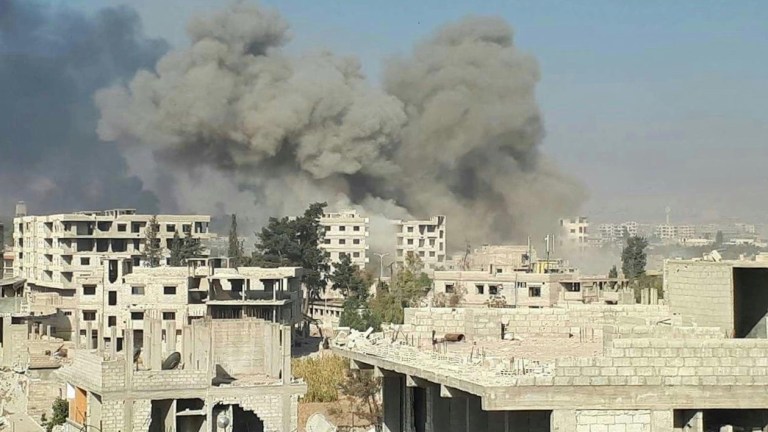
Across Syria, some 3 million people live in besieged or hard-to-reach places like this. The reasons why so many do not flee—or cannot—are complex.
1. Armed groups have a vested interest in keeping civilians put.
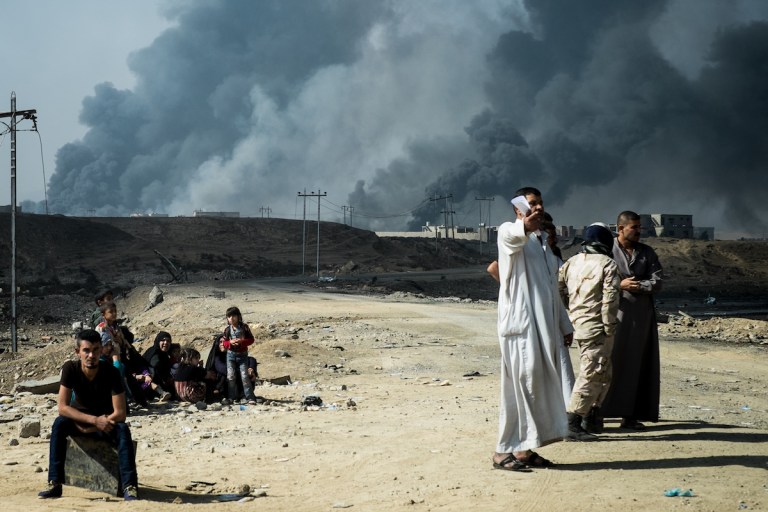
Over the weekend, British newspaper The Independent spoke to a Syrian father of three who tried to get his family out. (This was shortly before the humanitarian corridor was opened.) Militia fighters turned them back.
“You should stay here and support our fight,” they reportedly told him. “You should not even send your wife and children away.”
We witnessed a similar trend during the war against ISIS in Iraq—especially in places like Fallujah and Mosul, where civilians were often shot at while they fled. ISIS also planted landmines around Fallujah to kill those who made it out of the city.
Armed groups in almost every conflict have a vested interest in keeping civilians where they are. No one wants to defend empty territory.
The temptation to use civilians as human shields is far too great.
That’s as true in Syria as it has been in Iraq. According to The Independent, “This has been the pattern in all the many sieges in Syria conducted by all sides.”
2. Many families fear reprisals if they leave.
The Syrian father who tried to escape voiced his fear—not just for what might happen to his family if they stayed, but for what might happen if they left.
Such fears are not unfounded.
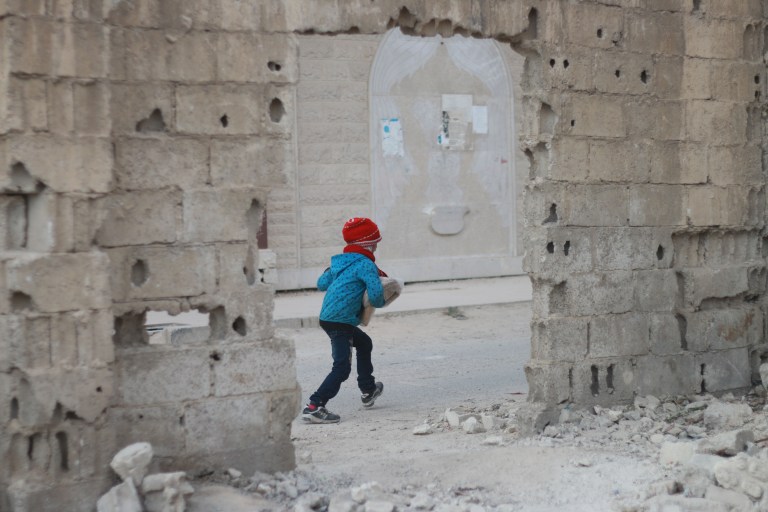
Those who flee often face detention if they make it out. For example, when Iraqi forces recaptured Fallujah in 2016, almost every adult and teenage male was detained, automatically suspected of being an ISIS militant. In some cases, there were well-founded reasons for suspicion. But many were needlessly separated from their families at the precise moment of their greatest vulnerability.
In addition, those who escape besieged areas often face the risk of being conscripted to fight for the other side.
Violence also fuels sectarian division and mistrust between communities. During the battle for Mosul, Iraq’s second largest city, many Arabs were reluctant to flee north to predominantly Kurdish territory, fearful of how they might be treated. Others were reportedly turned back for attempting to do so.
To this day, a shadow of suspicion hangs over former ISIS strongholds like Fallujah and Mosul, as Iraqis face a difficult choice between reconciliation and retribution.
A similar story is now playing out in Syria. As The Independent writes:
Seven years of civil war has ensured that Syrians on different sides, many of whom will have lost relatives in the violence, regard each other with undiluted hatred.
Violence breeds mistrust, and ultimately, more violence.
3. Many families are too hungry or too poor to flee.
Often those with the greatest means are the first to flee—those who have vehicles that can take them to safety, those who can afford to pay rent in an unfamiliar city (often at inflated prices), those who can afford the exorbitant fees demanded by mercenary smugglers.
Those left behind are usually the poorest, most vulnerable members of a community.
And as families in Syria are experiencing right now, years of siege can sap a community of whatever resources it once had.
In a place once known for its agricultural abundance, Syrian families are starving, thanks to years of siege and skyrocketing food prices. Many are eating just one meal a day. One in eight children is severely malnourished.
Imagine trying to flee—walking miles through an active war zone—when you’ve had almost nothing to eat.
4. Some don’t want to flee.
It’s hard to understand why anyone would “choose” to stay in a war zone, over the relative safety of a refugee camp. Assuming they’re able to reach one, that is.
But for many families, leaving their besieged homes simply means trading one form of confinement for another. To live in a refugee camp is to surrender your sovereignty in return for some measure of safety. And given the prevalence of sexual assault and abuse in some camps, that safety may be more illusion than reality.
||
War forces families to make impossible choices.
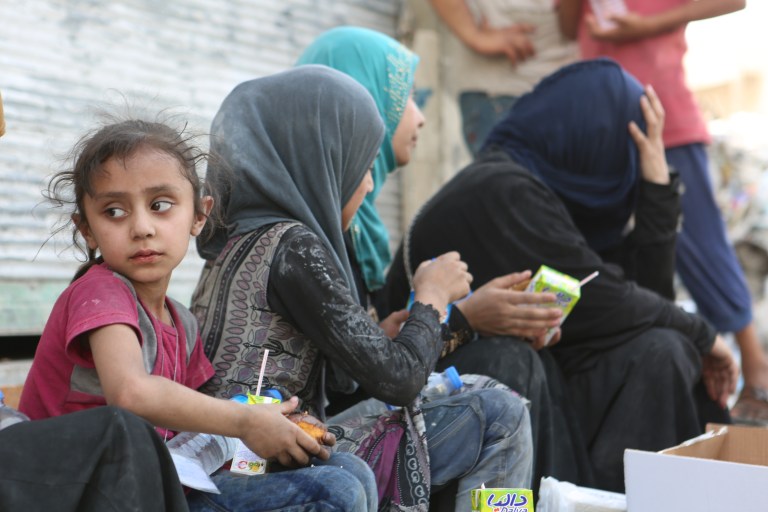
The Syrian father who tried to escape with his family—he says he now expects to be killed at any moment.
In the end, it’s not enough to open a humanitarian corridor. Not when the bombs are still falling. Not when families have no realistic hope of safety, regardless of whether they stay or flee.
Syria’s families—on all sides of this conflict—deserve more than this.

